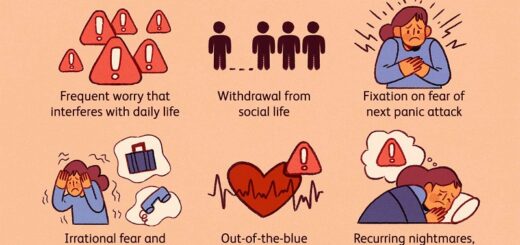Harnessing Positive Thinking: Your Secret Weapon Against Stress
In the fast-paced world we live in, stress has become a relentless companion. Whether it’s work deadlines, family obligations, or health concerns, the pressures of daily life can take a toll on our mental and physical well-being. While tackling the root cause of our stress is important, developing effective coping mechanisms is equally crucial. This is where the power of positive thinking shines.
What is Positive Thinking?
Positive thinking isn’t about burying your head in the sand or ignoring the challenges life throws your way. It’s about approaching situations with a mindset of optimism and resilience. Positive thinkers believe in their ability to overcome obstacles, focus on the good in any situation, and cultivate gratitude for what they have.
It’s important to be realistic – positive thinking is not a magic wand that eliminates all problems, but it does give you powerful tools to navigate challenging times.
The Science Behind Positive Thinking and Stress
Research consistently demonstrates a strong link between positive thinking and improved stress management. Here’s how it works:
- Reduced Cortisol: Cortisol, the primary stress hormone, can wreak havoc on your body and mind. Positive thinking has been shown to lower cortisol levels, promoting relaxation and reducing the harmful effects of chronic stress.
- Enhanced Immune Function: Stress can compromise your immune system. Positive thinking helps strengthen your immune response, making you less susceptible to illness.
- Improved Cardiovascular Health: Studies suggest that positive attitudes and emotions may protect against heart disease by lowering blood pressure and reducing inflammation.
- Boosted Resilience: When faced with setbacks, positive thinkers are more likely to persevere and view challenges as opportunities for growth. They are better equipped to bounce back from adversity.
The Power of Positivity: Using Fractions with the Right Mindset
How to Cultivate Positive Thinking
If you’re used to a more pessimistic outlook, shifting your mindset doesn’t happen overnight. But with consistent effort, you can train your brain to focus on the positive. Try these practical strategies:
- Challenge Negative Self-Talk: We all have that inner critic. Notice when negative thoughts pop up (“I’ll never get this done,” “I’m not good enough”). Counter them with positive affirmations (“I’m capable of handling this,” “I’m making progress”).
- Surround Yourself with Positivity: The people you spend time with influence your outlook. Seek out supportive and optimistic friends, family, and colleagues. Limit exposure to negativity in news and social media.
- Practice Gratitude: Focusing on what you’re thankful for shifts your attention away from problems. Keep a gratitude journal and take a few minutes each day to write down things you appreciate.
- Reframe Negative Situations: When faced with a challenge, ask yourself, “What can I learn from this?” or “How can this make me stronger?” Look for the silver linings.
- Engage in Activities You Enjoy: Doing things you love boosts dopamine levels, a neurotransmitter associated with pleasure and motivation. This fosters a more positive mindset.
- Visualization: Imagine yourself calmly and confidently handling stressful situations. This technique builds self-efficacy and reduces anxiety.
- Mindfulness and Meditation: These practices help you become more aware of your thoughts and emotions in the present moment, preventing you from dwelling on negativity.
Additional Tips for Maximizing the Benefits
- Don’t Force It: Some days will be harder than others. Be kind to yourself and don’t get discouraged if you slip into negativity occasionally.
- Focus on Progress: Celebrate small victories and acknowledge the effort you’re putting into developing a more positive mindset.
- Seek Professional Help: If you struggle with chronic negativity or feel overwhelmed by stress, consider therapy. A trained therapist can teach you effective coping strategies tailored to your needs.
Positive Thinking in Action
Imagine two people stuck in a traffic jam. One gets angry, frustrated, and stressed, while the other uses the time to listen to an audiobook, practice relaxation techniques, or simply appreciates the chance to unwind. Clearly, different mindsets lead to vastly different experiences of the same situation.
Positive thinking is a choice you make each day. By embracing its power, you equip yourself with a powerful tool to buffer life’s stressors, leading to increased happiness, resilience, and overall well-being.














